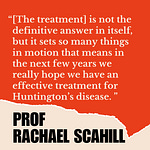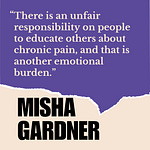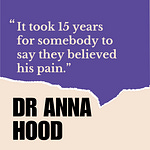It is December: it is darker and colder, and seasonal affective disorder, or SAD, has come up in conversation again. Articles are popping up left, right, and center on how to beat the winter blues.
It can be difficult to be positive about the winter; especially in the UK where complaining about the weather comes before “hey, how are you?”. It can sometimes feel like we’re surviving this season until the days, and our moods, become brighter.
Dr Kari Leibowtiz is challenging our gloomy view of winter. Kari is a Health Psychologist with a PhD from Stanford University – she has spent her career studying how our mindsets affect our health. In her research and her new book “How To Winter”, she argues we need to change our mindsets about winter.
Can winter mindset improve our mental health in this season? How does this fit with what we know about seasonal affective disorder?
In this episode, Kari talks about the issues with how we have traditionally diagnosed seasonal affective disorder, how changing our mindsets about winter is associated with our well-being, and what the evidence shows us (and what it doesn’t).
Part of the problem with a lot of pop science books is that they make big claims about associations or correlational evidence. Kari’s book, on the other hand, is balanced. It is clear when the evidence is limited or when she is drawing on other areas of the research, and where experience and culture come into the strategies. I asked her why it was important to write her book in this way and Kari talked us through piecing together the parts of the puzzle and ensuring she transparently presented the science.
I hope you enjoy this episode and it brightens your wintery day! We’ve been thinking about winter wins on Instagram and posting little snippets of something wintery that made us feel good - click reply to this email or tag us on Instagram to let us know your winter wins.
Resources and recommendations
The journal article discussed: Leibowitz and Vittersø (2020), Winter is coming: Wintertime mindset and wellbeing in Norway, published in International Journal of Wellbeing
More information on Kari’s book and newsletter: https://www.karileibowitz.com
Help and support
If you are affected by any of the issues discussed in the episode, you can access free support via the following links:
Samaritans contact information: https://www.samaritans.org/how-we-can-help/contact-samaritan/
The Mix online chat and phone helplines for under 25s: https://www.themix.org.uk/get-support
Mind Charity contacts: https://www.mind.org.uk/information-support/for-children-and-young-people/useful-contacts/
The views and opinions expressed by guests on this podcast are their own and do not necessarily reflect those of the host or The Science or Fiction Podcast.












